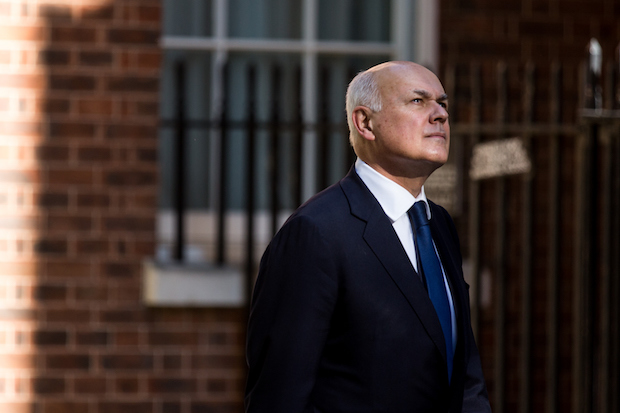Labour has had a difficult summer over welfare, so it’s no surprise its frontbench played it safe at Work and Pensions questions today. Instead of ruthlessly quizzing the government on the recent statistics showing the death of those being found fit to work or even the Welfare Bill, its frontbench team chose to attack on Universal Credit, something it tends to turn to in times of trouble.
Iain Duncan Smith, the Work and Pensions Secretary, claimed ‘Universal Credit is going to be a remarkable success’ despite the endless delays and technical missteps:
‘Universal Credit is now available in over half of job centres across Great Britain and available in all Jobcentres early next year. The national roll out is on track and our “test and learn” approach is now working very well. Nearly 175,000 people have made a claim to Universal Credit so far and this is growing exponentially as we roll it out around the country and our evidence shows that the Universal Credit claimants find work quicker, stay in work longer and earn more than the Jobseekers’ Allowance claimants.’
Stephen Timms, the shadow employment minister, accused the government again of mishandling the project and failing to give a clear deadline for its completion:
‘The number of people receiving Universal Credit remains derisory small. Four years ago, the Secretary of State told us the transition to Universal Credit would be complete by 2017. We told him he wouldn’t manage it. We were right, he was wrong. But he still hasn’t given us a new, revised date for the completion of the Universal Credit roll out. Has he given up entirely ever having one?’
Duncan Smith insisted ‘it will go out fully next year’ and in return attacked Labour for having no right to accuse the government of failure, given its track record on introducing tax credits:
‘Unlike the last government, when they rolled out tax credits and saw hundreds of thousands of people lost their money, this is ensuring people who deserve money and are ready for the money get paid it.’
As Isabel argued last year, taking the slow and steady approach can be a good thing because it allows all of the niggles to be worked out of a new programme before it is introduced on a large scale. And Labour is trapped because it still broadly supports UC. After the new leader is installed, it’ll be interesting to see how the party holds the government to account over welfare and where the dividing lines are.






Comments